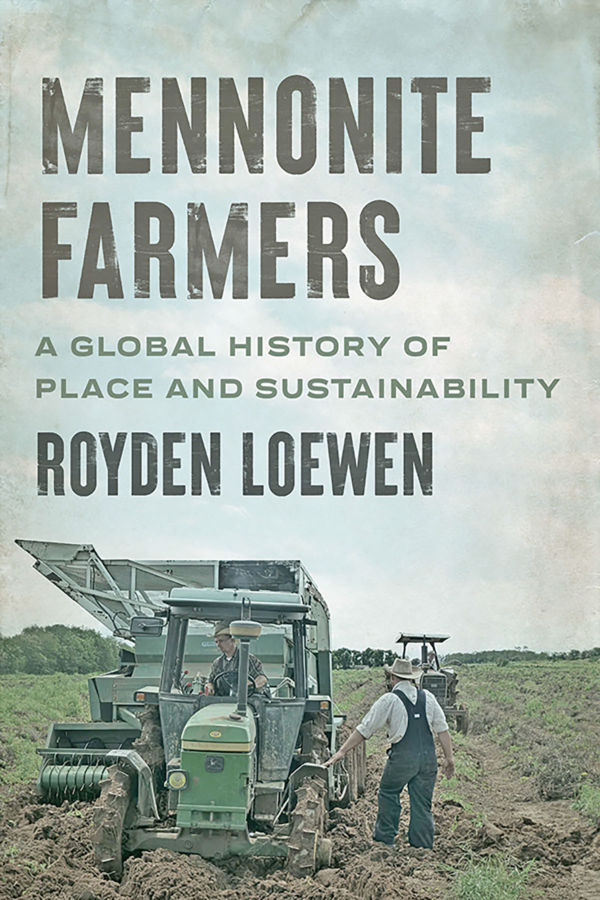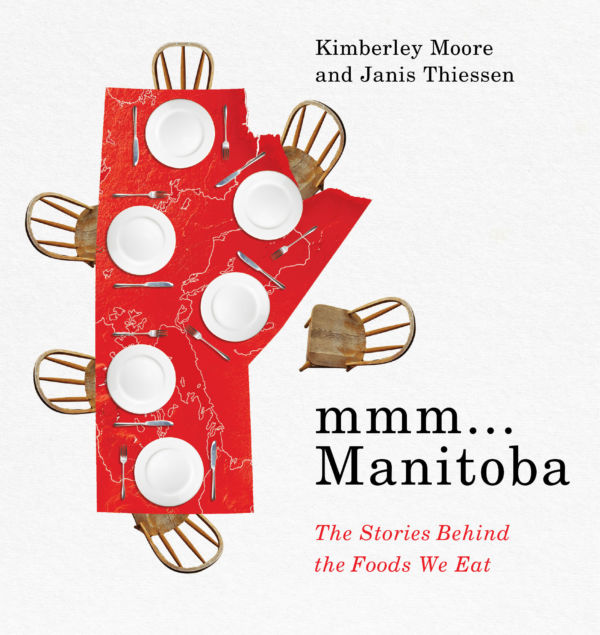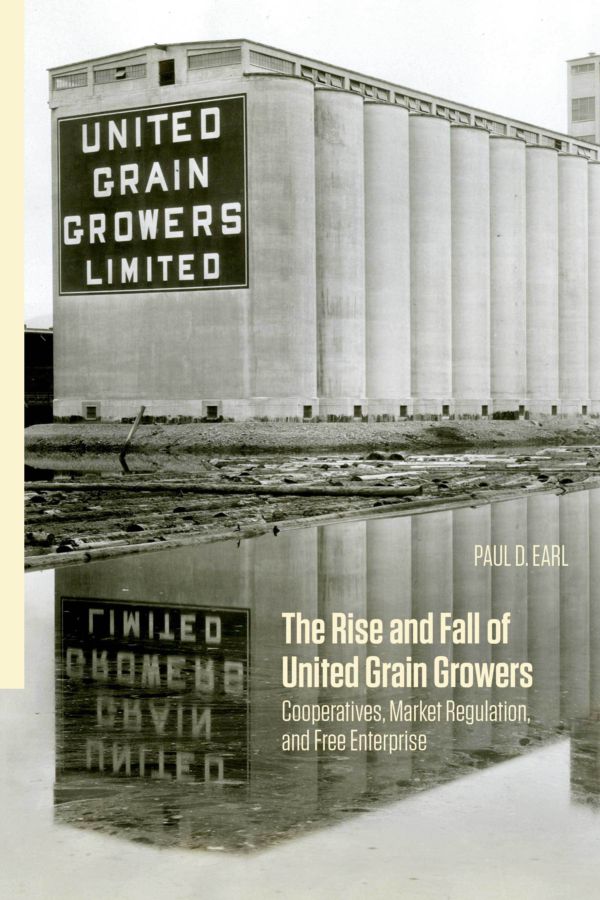Overview
Mennonite farmers can be found in dozens of countries spanning five continents. In this comparative world-scale environmental history, Royden Loewen draws on a multi-year study of seven geographically distinctive Anabaptist communities around the world, focusing on Mennonite farmers in Bolivia, Canada, Indonesia, the Netherlands, Russia, the United States, and Zimbabwe. These farmers, who include Amish, Brethren in Christ, and Siberian Baptists, till the land in starkly distinctive climates. They absorb very disparate societal lessons while being shaped by particular faith outlooks, historical memory, and the natural environment.
The book reveals the ways in which modern-day Mennonite farmers have adjusted to diverse temperatures, precipitation, soil types, and relative degrees of climate change. These farmers have faced broad global forces of modernization during the twentieth and early twenty-first centuries, from commodity markets and intrusive governments to technologies marked increasingly by the mechanical, chemical, and genetic.
As Mennonites, Loewen writes, these farmers were raised with knowledge of the historic Anabaptist teachings on community, simplicity, and peace that stood alongside ideas on place and sustainability. Nonetheless, conditioned by gender, class, ethnicity, race, and local values, they put their agricultural ideas into practice in remarkably diverse ways. Mennonite Farmers is a pioneering work that brings faith into conversation with the land in distinctive ways.
Reviews
"An outstanding work of comparative oral history that artfully situates Mennonite farmers within the context of Anabaptist teachings, the Mennonite diaspora, and the Anthropocene. Offering extensive descriptions of each rural environment and personal stories of life on the land, Loewen helps readers come to know each place comfortably. This excellent book is uniquely positioned to demonstrate how communitarian faith and cultural enclaves compare with 'high modernist' and technocratic government approaches to the environment."
Joshua MacFadyen, University of Prince Edward Island, author of Flax Americana: A History of the Fibre and Oil That Covered a Continent
"Mennonite Farmers makes an important and original contribution to the history of rural and agricultural communities worldwide. Loewen does an excellent job of documenting and explaining the considerable diversity of experience across and even within seven different Mennonite communities around the world."
Ruth Sandwell, University of Toronto, author of Canada's Rural Majority, 1870–1940: Households, Environments, Economies
"An imaginative and graceful global history of Mennonite farming. Mennonite Farmers offers a fresh perspective on the histories of agriculture, environment, and sustainability in the twentieth century."
Stuart McCook
"Wonder what a group of farmers from four corners of the globe might discuss if they all came together for a coffee hour? Royden Loewen enlightens us by addressing how culture undergirds agriculture and how belief influences the business of farming. Mennonite Farmers confirms that commitment comes at a cost but can also sustain farm fields and families alike."
Debra A. Reid, Curator of Agriculture and the Environment, The Henry Ford Museum
"Writing global history with attention to local realities is a complex undertaking, but Royden Loewen tackles it with acumen, and the result is exemplary… Mennonite Farmers is a model of interdisciplinarity and the product of decades of scholarly work. Loewen’s book will be the subject of discussion for years to come, finding a wide readership among students, scholars, and general readers alike."
Linda M. Ambrose, The Canadian Historical Review
"Mennonite Farmers has expanded the scholarship of not only the comparative study of Mennonite communities but also the cross-fertilization between environmental and agricultural history. Its utilization of a wide range of sources from personal memoirs to farm diaries to interviews sheds light on how different generations of Mennonites cultivated their relations with the land and each other... Situated in the current literature of religion and environmental studies, this book delineates how the experiences of Mennonites resonate with the debates about agency and scale in the Anthropocene, when the idea of nature, in Christian and other tradition, demands urgent reevaluation and reconceptualization."
Leo C. L. Chu, H-Environment
"Anyone interested in rural Mennonite history or agricultural history, separately or together, will welcome this thoughtful analysis. Particularly skilful is Loewen’s presentation of global agricultural change from the perspective of the local."
Molly P. Rozum, Prairie History
"By taking a historically and geographically expansive approach that remains firmly rooted in its seven case studies, Loewen aims to explore 'points of instability' where attention to local life in a global context may help us understand how we can care for the earth, enjoy our time on it, and continue to take sustenance from it."
Peter Simons, Canadian Journal of History
"Loewen’s book deftly weaves together information from textual sources and ethnographic research—the first study to compare Mennonites across the globe around a general, non-historical theme. It is an important book that is worth reading for any researcher of Mennonite history, missionary work, or international aid and development."
Rebecca Janzen, Mennonite Historian
"Loewen argues that local histories, adaptations to modernization, and contemporary practices of Mennonite farming communities provide insight into the impact of agricultural development around the world. He does this by combining oral history and comparative analysis to see how planetary phenomena manifests in small agrarian collectives as well as how each one uniquely responds."
Joseph R. Wiebe, Journal of Mennonite Studies
“An innovative examination of the history of Mennonite agriculture that blends local and global histories of place… This book is valuable not only for Mennonite historians, of course, but also for any scholar of religion, the evolving role of the state, global agriculture, or place as it serves as a master class for how scholars can write sweeping global histories without neglecting the importance of the local.”
Shelisa Klassen, University of Toronto Quarterly
Awards
Wallace K. Ferguson Prize, Canadian Historical Association (2022)
Manitoba Day Award, Association of Manitoba Archives (2022)
Margaret McWilliams Book Award for Scholarly History (2021)
About the Author
Table of Contents
Acknowledgements
Introduction
Ch 1. Sect and Settler in the North: Plowing Friesland, Iowa, Manitoba, and Siberia
Ch 2. Peasant and Piety in the South: Planting Java, Matabeleland, and Bolivia's Oriente
Ch 3. Something New under the Mennonite Sun: A Century of Agricultural Change
Ch 4. Making Peace on Earth: Seven Farmers and a Faith of the Everyday
Ch 5. Women on the Land: Gender and Growing Food in Patriarchal Lands
Ch 6. Farm Subjects and State Biopower: Seven Degrees of Separation
Ch 7 Vernaculars of Climate Change: Southern Concern, Northern Complacency
Ch 8. Mennonite Farmers in "World Scale" History: Seven Encounters on Earth
Conclusion
Appendix
Notes
Bibliography
Index






